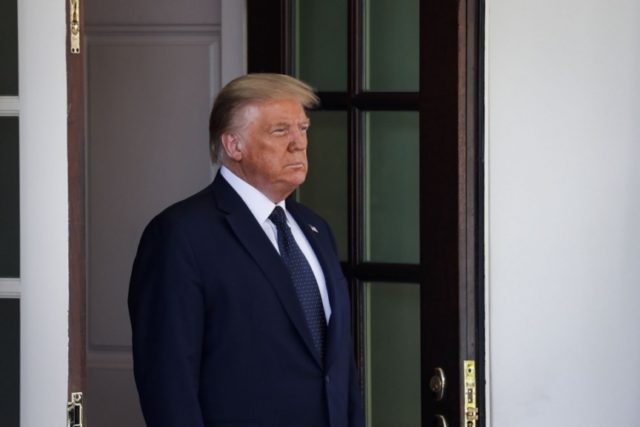July 9 (UPI) — The U.S. Supreme Court issued split decisions Thursday involving two legal cases concerning efforts to access President Donald Trump’s financial records, including tax returns.
Trump vs. Vance
The high court ruled in this case that New York City prosecutors can see the president’s tax records as part of a grand jury investigation.
In the landmark 7-2 decision, justices ruled that Trump must hand over the records under a subpoena from Manhattan District Attorney Cyrus Vance. It seeks nearly a decade’s worth of financial records.
The grand jury subpoenaed Trump’s records as part of an investigation into “hush money” payments the president supposedly made to two women to keep extramarital affairs secret.
The high court agreed with a lower court ruling that said the subpoena is lawful because it’s directed at Trump’s accounting firm, Mazars USA, and not the president himself. Trump’s attorneys argued that a sitting president cannot be indicted and is therefore immune from any part of the criminal justice process, including grand jury subpoenas.
In writing the majority opinion, Chief Justice John Roberts said the presidency does not include immunity from prosecution.
“No citizen, not even the president, is categorically above the common duty to produce evidence when called upon in a criminal proceeding,” he wrote.
In a decision likely to become a milestone ruling on the powers of the presidency, the court determined that Article II and the Supremacy Clause do not “categorically preclude” or “require a heightened standard” for issuing a criminal subpoena to a sitting president.
Justices Samuel Alito and Clarence Thomas dissented.
While a victory for prosecutors, the decision likely means Trump’s records will remain out of public view at least until after the election in November, due to grand jury secrecy rules.
President Donald Trump waits at the White House on Wednesday for the arrival of Mexican President Andres Manuel Lopez Obrador. Photo Al Drago/UPI
Trump denounced the decision as a “political prosecution.”
“I won the Mueller Witch Hunt, and others, and now I have to keep fighting in a politically corrupt New York,” he tweeted. “Not fair to this presidency or administration!”
Vance called the ruling a “tremendous victory for our nation’s system of justice and its founding principle that no one — not even a president — is above the law.”
“Our investigation, which was delayed for almost a year by this lawsuit, will resume, guided as always by the grand jury’s solemn obligation to follow the law and the facts, wherever they may lead,” he said in a statement.
Trump vs. Mazars USA
In its second decision, the court ruled against Democratic lawmakers who seek some of the same records. They were initially requested after the president’s former personal attorney, Michael Cohen, testified last year that he manipulated the value of Trump’s assets for personal gain.
The ruling said lower courts didn’t do enough to examine Democrats’ claims that the records are needed to strengthen laws against various crimes, including money laundering and foreign influence in U.S. elections.
Again in a 7-2 vote, the ruling sends the case back to the lower appellate court for further review. That court previously upheld a ruling that said the firm must hand over the records.
Trump’s attorneys challenged the decision on the grounds that lawmakers don’t have subpoena authority for anything other than writing laws.
“The courts below did not take adequate account of the significant separation of powers concerns implicated by congressional subpoenas for the president’s information,” Roberts wrote for the majority in the decision.
Thomas and Alito, again, cast the dissenting votes.
White House attorney Jay Sekulow promised in response to “raise additional constitutional and legal issues.”
The Supreme Court was also expected, possibly, to act in a third related case Thursday involving records at Deutsche Bank and Capital One. In that case, a lower appellate court ruled in favor of House lawmakers and said they make a compelling argument that there’s legitimate concern involving national security.
Trump never released his tax returns during his 2016 campaign, as is traditional for presidential candidates. He initially cited an audit as the reason and promised to release the returns when it was complete. Other times, he has been non-committal about releasing them for public scrutiny.

COMMENTS
Please let us know if you're having issues with commenting.